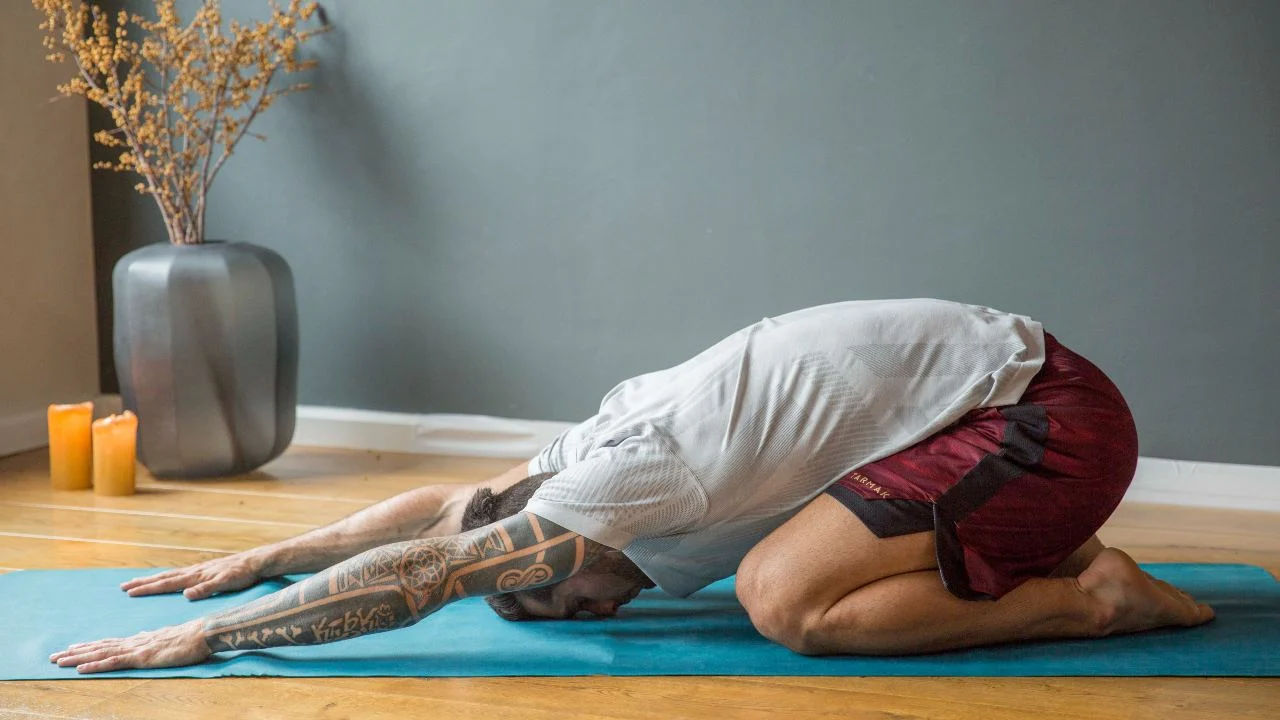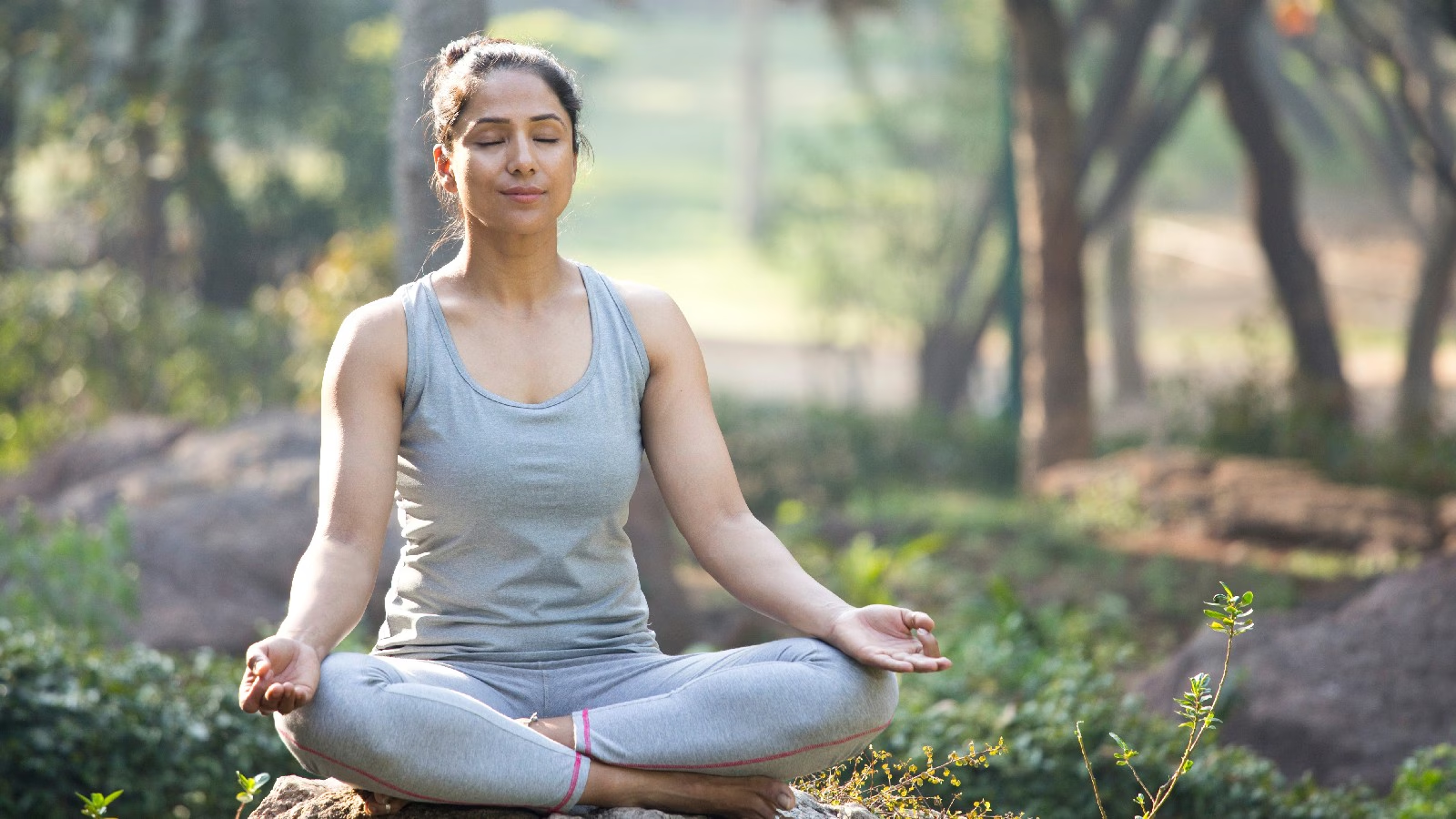Modern life is filled with stress and anxiety. According to the American Psychological Association, more than 75% of Americans report experiencing physical symptoms caused by stress. This rising concern has led many to seek solutions, and yoga has emerged as a powerful coping mechanism.
Yoga is an ancient practice that blends physical postures, breathing exercises, and meditation. Its benefits extend beyond just physical fitness; it enhances mental well-being too. This article explores how yoga contributes to mental and physical health, backed by research and real-life success stories.
Stress Reduction and Anxiety Management Through Yoga
Yoga’s Impact on the Nervous System
Yoga affects the body’s stress response. It lowers cortisol levels, the hormone responsible for stress. A study published in the Journal of Clinical Psychology found that practicing yoga can significantly reduce cortisol levels in participants. Lower stress hormones lead to fewer instances of stress-related illnesses, such as heart disease and gastrointestinal problems.
Mindfulness and Meditation in Yoga
Mindfulness is a core component of yoga. Techniques such as pranayama (breathing exercises) promote relaxation and calmness. Poses like a Child’s Pose and Forward Fold help release tension and ground the mind. Focusing on breathing during these poses helps clear the mind and reduce anxiety.
Case Study
Consider the story of Sarah, a marketing executive who faced overwhelming anxiety. After integrating yoga into her routine, she reported feeling calmer and more balanced, allowing her to manage work stress more effectively. This transformation is supported by research that links yoga practice with reduced anxiety levels.
Improved Physical Health and Fitness with Yoga
Increased Flexibility and Balance
Yoga is well-known for improving flexibility and balance. According to the National Institute on Aging, falls are a leading cause of injury among older adults. Regular yoga practice enhances the range of motion and stability, reducing the risk of falls.
Strength-building and Muscle-toning
Different styles of yoga offer varied benefits. For example, Vinyasa and Power Yoga focus on flowing sequences that build strength and tone muscles. Poses like Plank and Warrior II challenge the body, promoting muscle engagement and endurance.
Cardiovascular Health Benefits
Research shows yoga can improve heart health. A meta-analysis in the European Journal of Preventive Cardiology concluded that yoga positively influences blood pressure and heart rate. Regular practice can lead to lasting cardiovascular improvements.

Enhanced Mental Clarity and Cognitive Function
Improved Focus and Concentration
Yoga enhances cognitive function by boosting focus and concentration. A study published in the Journal of Physical Activity and Health revealed that students who practiced yoga showed significant improvements in attention span.
Boosted Mood and Reduced Depression
Regular yoga practice elevates mood by increasing serotonin and endorphin levels. A study in the Journal of Alternative and Complementary Medicine found participants reported significantly lower depression levels after consistent yoga sessions.
Cognitive Benefits for Older Adults
Yoga also benefits cognitive health in older adults. Research published in the Journal of Alzheimer’s Disease highlighted that yoga practice can improve memory and reduce the risk of cognitive decline.
Yoga for Better Sleep and Improved Sleep Quality
Stress Reduction and Sleep
Reducing stress with yoga can lead to better sleep quality. Engaging in a calming yoga practice before bed allows the mind to unwind. Consider incorporating Evening Yoga poses like Legs Up the Wall for relaxation.
Restorative Yoga and Sleep
Restorative yoga focuses on gentle stretches and relaxation. Poses such as Supported Bridge Pose and Bound Angle Pose encourage deep relaxation, leading to improved sleep quality.
Breathing Techniques for Sleep
Pranayama techniques can enhance sleep quality. Practices like 4-7-8 breathing involve inhaling for four seconds, holding for seven, and exhaling for eight. This method calms the nervous system, promoting a better night’s sleep.
Finding the Right Yoga Style for You
Different Types of Yoga
Various yoga styles cater to different needs. Hatha offers gentle movements, while Vinyasa offers dynamic flows. Yin focuses on deep stretches, and Restorative promotes relaxation. Understanding each style helps you find what suits you best.
Finding a Qualified Instructor
Seek out experienced yoga instructors who can guide you effectively. Look for qualified studios that promote safe practices. This helps beginners feel supported and confident in their practice.
Starting Slowly and Listening to Your Body
Beginners should start at their own pace, listening to their bodies. It’s essential to practice mindfully to avoid injuries and build a strong foundation.
Conclusion
Yoga offers a myriad of benefits for both mental and physical health. From stress reduction to improved sleep, integrating yoga into your daily routine can lead to significant changes in your well-being.
Try practicing yoga to experience its transformative effects firsthand. For more information, consider exploring yoga studios in your area or checking out online resources to get started.
